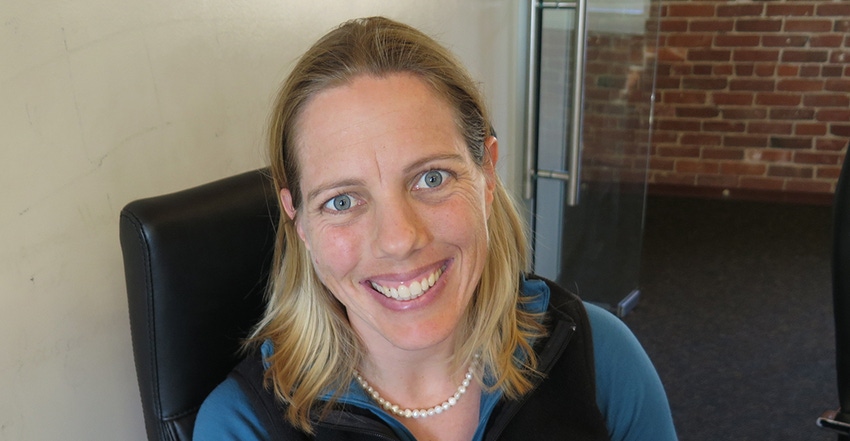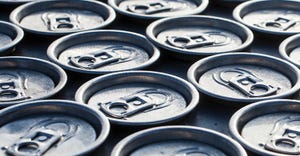Passion for Organics Recycling Runs Deeps for Harvest Power’s Sorensen
Meredith Sorensen, a 2019 Waste360 40 Under 40 award recipient, discusses her work, passion for organics and sustainability and what it's like to run a preschool and drive a dump truck.

Communications pro, organics recycler, clean energy innovator, sustainability advocate, waste manager, composter, gardener: Meredith Sorensen is clearly a woman who enjoys wearing a lot of hats.
Sorensen's main gigs are working as communications director for Harvest Power, the Waltham, Mass.-based organics recycling company, and running her own communications firm, Solid Strategies, in Portland, Ore., where she is based.
Additionally, she runs a preschool and is learning to drive heavy-duty trucks.
Gary Aguinaga, chief operating officer of Harvest Power's energy group, has worked with Sorensen for years. During that time, Aguinaga says, he has enjoyed watching Sorensen excel in many areas, particularly research, leadership and creativity.
"Her ability to forge cross-regional and cross-institutional relationships is unique and valuable," says Aguinaga. "Resilient economies are bolstered through dynamic connections, and Meredith, with her ability to connect people, ideas and action, is a catalyst in building these systems."
We recently spoke with Sorensen, a 2019 Waste360 40 Under 40 award recipient, about her work, passion for organics and sustainability and what it's like to run a preschool and drive a dump truck.
Waste360: I understand you've toured many materials management facilities. What's the most important thing you've learned from doing that?
Meredith Sorensen: That there's no such thing as "away." It all goes somewhere.
Waste360: Can you share a memorable experience you've had while touring one of these facilities?
Meredith Sorensen: I remember my first tour of an anaerobic digester. It was at an orphanage in Madagascar, East Africa. The director had set up simple systems to meet his needs. It had elevated pit latrines that served as bathrooms. The latrines flowed into a tank covered with a floating top that served as the digester. He could add cow manure, too. The amount of methane gas in the tank could be estimated based on how high or low the cover was floating, and a tube coming off of the tank led over to the kitchen stoves. Beyond the kitchen, gardens nourished by digestate from the simple digester grew food for the orphanage. I was blown away by how efficiently this small, circular footprint simultaneously managed waste, nourished bodies and fueled meals. I guess it's not surprising that my career path continued to follow organic waste streams, though on a larger scale with Harvest Power.
Waste360: You've done a lot of writing about organics recycling and related topics. What's the most enjoyable thing you've written about, and why?
Meredith Sorensen: I love writing about the power people have to recycle organics and improve soil health. Why? So many reasons. Organic waste is at everyone's fingertips. Organics and soil are tangible—you can touch and feel them. They are also actionable. Almost everyone has access to a bit of earth and can sort their scraps or add some compost. And as I think about it, I'm realizing that whenever I turn my attention toward composting, I feel more connected to my parents, who are avid composters and gardeners.
Waste360: You spent three years teaching composting to rural farmers. What's the most interesting thing you learned from doing that?
Meredith Sorensen: Behavior change is possible—it just takes a small series of choices over time.
Waste360: I understand you're working on getting a commercial driver’s license (CDL). Why are you doing that? What has surprised you most about the experience?
Meredith Sorensen: I'm getting my CDL so that I can drive our dump truck. Last year, my husband bought a 10-ton dump truck for his excavation business, and we realized it would be helpful if I could drive down the road to pick up a load of rock or drop off some demolition debris. Overall, it's going great because I love to learn new skills. But there have been challenges. Backing up using just the mirrors has been tricky. I've had to tap into a whole new part of my brain and practice a lot. I've developed a much deeper respect for truck drivers. Every day, they work hard to make safe choices, maintain their rigs and think ahead in terms of turns and navigation. I now give them much more room on the road. I passed all of the written tests last fall, and I've scheduled my practical tests for later this spring.
Waste360: You've been active in the organics recycling industry for 18 years. Do you envision yourself doing anything different, outside the industry, in the future?
Meredith Sorensen: It's funny you should ask, because my career path has had some significant diversification in the last few months. I'm currently consulting on PR [public relations] and marketing for waste and energy companies, driving the dump truck and managing a few properties. And in a bizarre series of unexpected events, I now run a preschool. I bet you didn't see that one coming. I didn't either. It's called Mud Pies Preschool, and yes, we compost.
About the Author(s)
You May Also Like


